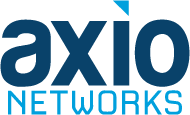Compliance Solutions for Small Business Owners
Why is Compliance Important?
Compliance ensures that your business takes the steps necessary to minimize your risk of legal or reputational consequences. Compliance is crucial for maintaining your business’s reputation, avoiding legal issues, and ensuring the trust of your customers. Compliance is not just a legal requirement; it’s the cornerstone of trust between you and your clients.
We are Experts in the Following Compliance Frameworks
SOC 2: An auditing procedure designed to ensure service providers securely manage data to protect the interests and privacy of their clients.ISO 27001: An international standard outlining best practices for an information security management system (ISMS).
HIPAA: The Health Insurance Portability and Accountability Act sets the standard for sensitive patient data protection.
PCI DSS: The Payment Card Industry Data Security Standard is a set of security standards designed to ensure that all companies that accept, process, store or transmit credit card information maintain a secure environment.
NIST CSF: The National Institute of Standards and Technology’s Cybersecurity Framework provides a policy framework of computer security guidance for private sector organizations in the United States.
NIST 800-171: Provides federal agencies with recommended security requirements for protecting the confidentiality of Controlled Unclassified Information (CUI).
FTC Safeguards Rule: Requires financial institutions under FTC jurisdiction to have measures in place to keep customer information secure.
GDPR: General Data Protection Regulation is a European Union regulation on information privacy within the EU and the European Economic Area (EEA). GDPR applies to any organization that processes the personal data of EU citizens or residents. The GDPR covers EU citizens’ data anywhere in the world.
US Data Privacy Framework: This is a program by the U.S. Department of Commerce that allows U.S. companies to self-certify their participation in the EU-U.S. Data Privacy Framework. It facilitates cross-border transfers of personal data in compliance with EU law. Companies must self-certify and publicly commit to comply with the EU-U.S. DPF Principles.
Common Misconceptions About Compliance
Compliance is a One-Time Event: Many believe the job is done once they achieve compliance. However, compliance is an ongoing process. Regulations change, and your business must continually adapt to stay compliant.
Compliance Equals Security: While compliance often involves implementing specific security measures, being compliant does not necessarily mean you’re fully secure. Compliance should be part of a broader, more comprehensive security strategy.
Small Businesses Don’t Need to Comply: You may think compliance regulations apply only to large corporations. However, many regulations apply regardless of your company’s size.
Compliance is Expensive: While achieving compliance can involve some costs, it’s a good investment because the cost of non-compliance (such as fines, reputational damage, and loss of customer trust) can be much higher.
We’ll Help You Use Technology to Solve Business Problems
Most compliance frameworks are linked to the technology you use to run your business.
Expertise: Specialized knowledge and expertise in IT systems, cybersecurity, and regulatory requirements.
Resources: Technology, staff, and tools to manage compliance tasks efficiently.
Proactive Approach: Regularly monitoring systems, implementing security measures, automated systems for monitoring, alerting, and reporting, and staying updated on regulatory changes.
Check Compliance off Your List
With a landscape as complex as IT compliance, you need a partner who can navigate the intricacies with expertise and foresight. Axio Networks is that partner. Contact us to explore how we can fortify your business against compliance risks and build trust with your clients.
